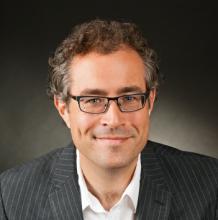Main Content
This year's ACL(x) conference, held at the University of South Carolina, included a panel on the future of graduate education in the languages and literatures. Its participants were asked as much as possible to reimagine graduate programs from the ground up -- to begin with no assumptions about what a PhD program might include (classes, for instance), and to from that starting point come up with some practical suggestions about ways things might be different.
I had asked the presenters to build their proposals around text-heavy Powerpoint slides, so that they could easily be transfered to a more public medium. And now here they are. The original slides are accompanied by a short commentary by each speaker, written after the conference.
How did the panel go? After the first three talks I leaned over to Priscilla Wald, who had spoken first, and said, "I'm so excited about this I can hardly stand it." Whether my own excitement will mirror yours, as you look over these presentations, I do not know. But I hope so. We need ideas, not just for what to change, but for how to change. Our tendency in "crisis" is to withdraw into ourselves, to sacrifice, as does any organism in conditions of starvation, the least necessary parts of ourselves to the core. Honestly I find that kind of defensiveness emotionally unbearable. Perhaps this reflects a lifelong preference for offense over defense, or a conviction that fighting for what you believe in does not require you to stay eternally the same. In any case I found the presentations below inspiring, not only because they gave me new ways to think about the institutional parameters of running a PhD program, but because they evinced so clearly what I find most beautiful about our discipline: its ongoing commitment to the imagination as a resource for transformation and hope.
The Presenters
- Priscilla Wald, Duke University
- Paul Saint-Amour, University of Pennsylvania
- Andy Parker, Rutgers University
- Hassan Melehy, University of North Carolina – Chapel Hill
- Rachel Gabara, University of Georgia
- Markus Reisenleitner, York University
- Eva-Lynn Jagoe, University of Toronto
- Eric Hayot, Penn State University
The Original CFP
The recent MLA report on the state of graduate education in literature was long on vague suggestions, but short on specific institutional recommendations. This panel invites current or former Directors of Graduate Studies to reinvent the graduate program from the ground up. No mandate for seminars, exams, or dissertations; they might be included, of course, but ought to be justified within the framework of the only mandatory goals: to be institutionally possible, and to prepare students for scholarship and employment in or around literature.
